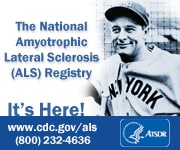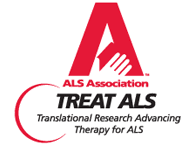- Picture the older patient with the hoofbeats of slurred speech. Stroke?
- Picture the younger patient with the same hoofbeats of slurred speech. Alcoholism again?
- Picture the homemaker having trouble opening jars. Arthritis?
- Picture the businessman whose left arm feels funny and whose golf shot has gone all to pot. Stress?
- Picture the young athlete who can't hit the baseball. Time for eyeglasses?
People with ALS have incredibe stories to tell about the long and expensive paths they had to take to get a correct diagnosis. It often takes years for physicians to look past all of those red-herring horses and see the ALS. We don't know how many people die every day from ALS without ever having been diagnosed correctly.
Doctors are trained not to jump straight to that "rare" diagnosis. Even if they suspect ALS, they don't want to make the diagnosis. There is nothing in the doctor's bag that will treat ALS, and there is no more difficult conversation on earth than to share that with a dying patient.
What if there were an effective treatment? Would ALS be diagnosed sooner? Would ALS be a topic that would be on the radar of more primary care physicians, and thus addressed promptly? Would a larger recognized patient population make the world more aware that Aunt Mary may not just have arthritis or that Uncle Joe may not have fallen off the wagon again.
In past decades, markets in many therapeutic areas that did not have effective treatments had been grossly underestimated. Today we have promising clinical trials going on for ALS. Perhaps part of that promise will be that ALS will be diagnosed more quickly and accurately. There may be a lot more hoofbeats in the ALS market than anyone realized.












